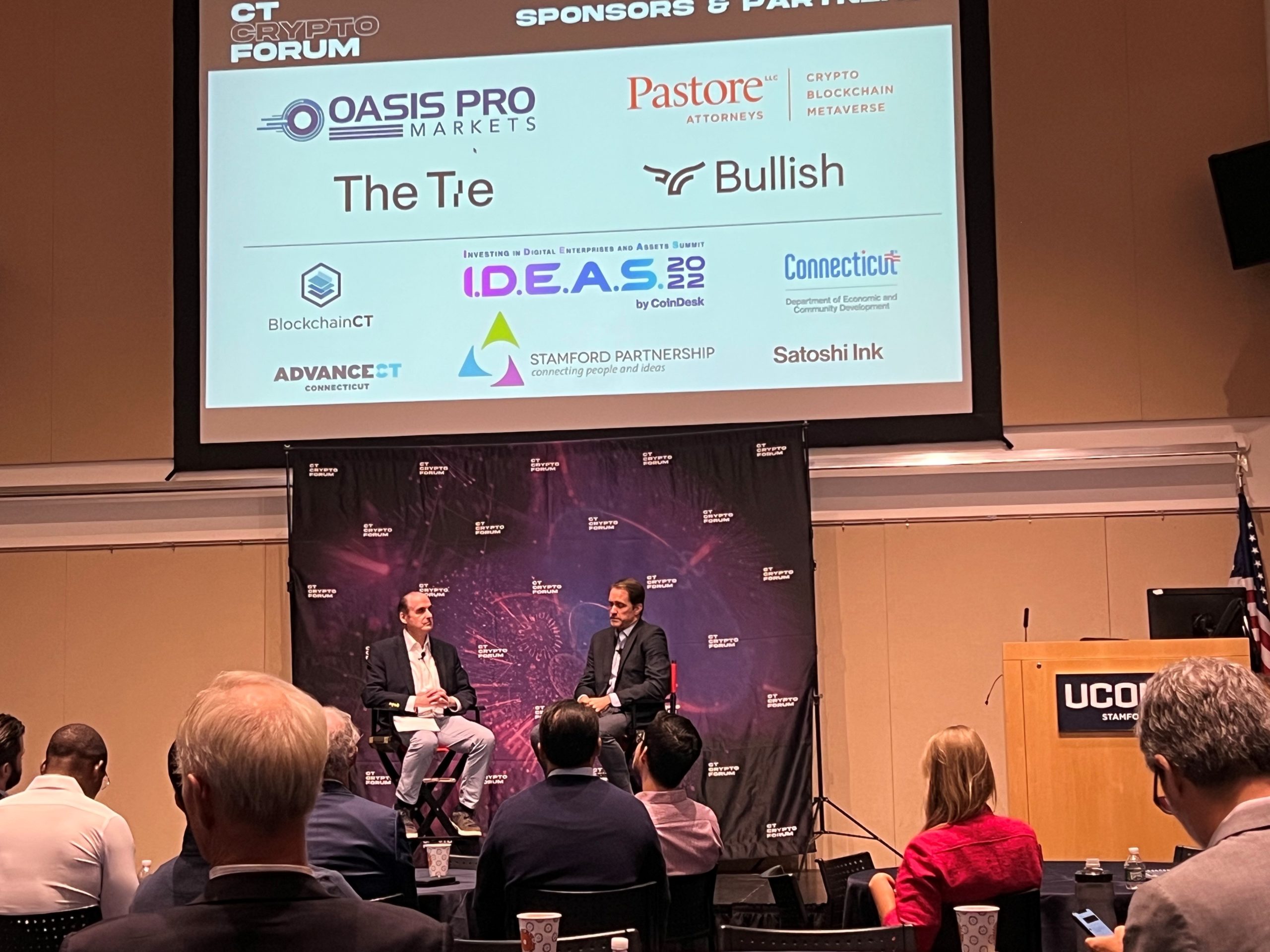Crypto will reach its potential in the next two years.
For those who may think that is a long time, remember that this burgeoning digital asset industry has percolated in the background since the first block of bitcoin was mined in 2009.
For those who may think that it is way too soon amid today’s environment, keep the faith.
Figuratively speaking, crypto 2023 is like accumulating debris in a back churn, where a creek’s flow attempts to force its way into a much larger lake. That is where crypto is right now. It is trying to make it out into the mainstream but is being held back. There is no momentum pushing it forward.
But crypto’s lull is coming to an end.
Ford Motor Company founder Henry Ford, who revolutionized the automobile industry with his assembly-line innovation, once said, “Patience and foresight are the two most important qualities in business.”
There are several reasons why today’s headlines signal a final push forward for crypto’s acceptance.
Too Difficult to Regulate Through Litigation
The Securities and Exchange Commission (“SEC”) continues to argue that it should oversee cryptocurrencies because they are securities—aside from Bitcoin—under the Howey test, which is a 1946 Supreme Court decision that is used today to determine what is an investment contract.
SEC Chair Gary Gensler said, “At the core, these (altcoin) tokens are securities because there’s a group in the middle and the public is anticipating profits based on that group,” during an interview with New York Magazine.
The SEC has turned its belief as the presumed overseer into a basis for lawsuits against significant players in the crypto space. Despite the SEC’s stance, regulation through litigation is not an appropriate method for the crypto industry.
The agency has filed 13 charges against the world’s largest crypto exchange, Binance, and its founder, Changpeng Zhao, alleging that both allowed certain U.S. residents on its exchange despite restrictions.
The SEC also has sued the world’s second-largest crypto exchange, Coinbase, alleging the platform operated as an unregistered national securities exchange and broker. The agency also alleged that at least 13 specific crypto assets that Coinbase offered were “crypto asset securities” and that its staking program counts as an investment contract for an unregistered security.
Coinbase has stated in an article on its website that it had met 30 times with the SEC during a nine-month period to set up a registration process for crypto companies. Instead of a path forward, however, the exchange said it received legal threats in the form of a Wells Notice.
At some point, most likely by the first of next year, both cases will be settled. The decisions in the Coinbase and Binance matters will help push crypto forward.
Too Difficult to Argue with Success
U.S. District Judge Analisa Torres handed crypto a memorable win in July, ruling that Ripple Labs’ XRP crypto token is not necessarily a security on face value—an opinion that counters the SEC’s stance.
The judge segmented the different sales methods involving XRP, which included programmatic sales, institutional sales and “other distributions” like employee compensation. XRP was ruled a security when it involved institutional sales that were distributed to sophisticated individuals. However, XRP was ruled not to be a security during “retail” or programmatic sales and other distributions.
Judge Torres also dismissed the agency’s interlocutory appeal, which is essentially an appeal before a final outcome. The court has set an April 24, 2024, date to decide the remaining issues regarding XRP.
But the matter may not be settled yet. Sometimes courts disagree.
In a separate securities case involving the collapsed TerraUSD, Anchor Protocol and LUNA, U.S. District Court Judge Jed Rakoff has rejected Judge Torres’ ruling, which parsed the nature of distributions.
“Howey makes no such distinction between purchasers,” said Rakoff, whose comments were published in Coindesk. “And it makes good sense that it did not. That a purchaser bought the coins directly from the defendants or, instead, in a secondary resale transaction has no impact on whether a reasonable individual would objectively view the defendant’s actions and statements as evincing a promise of profits based on their efforts.”
Crypto’s formal acceptance will most likely include notes from the highest court in the land. Do not be surprised if the U.S. Supreme Court adds an additional layer to the existing Howey test in the next two years to address Crypto’s status.
Too Difficult to Stifle Innovation
Fictional race car star Ricky Bobby, played by actor Will Ferrell in Talladega Nights, once said, “If you ain’t first, you’re last.”
That is the American ethos in a single sentence.
It is also another reason why the United States lagging, global position will change soon. After years of inaction from a nation built on innovation, the United States finds itself trailing other countries and regional blocks like Singapore, Japan and the European Union on advancing a framework that would allow crypto and digital assets to stake its place.
However, additional court wins have already started a momentum shift, which will lead to new products in the marketplace.
The D.C. Circuit Court of Appeals, for example, ruled that the SEC’s rejection of Grayscale Investments (“Grayscale”) proposed conversion of its closed-end bitcoin trust into an ETF was “arbitrary and capricious.” The three-judge panel said the agency failed to explain the difference between a futures bitcoin EFT, which it had approved, and a spot bitcoin ETF.
Grayscale’s victory will most likely have far-reaching implications that will change the financial landscape, ushering in a new asset class. Competitors such as BlackRock, Fidelity, Invesco and WisdomTree are also standing in line waiting to have their spot bitcoin ETF proposals approved by the SEC. The agency has 240 days to approve or deny applications, which means the first deadline for the earliest applicant would be January 10, 2024.
Nothing is holding the SEC back from approving all the applications, including ones for a spot Ethereum ETF, at the same time.
“The fact that SEC is actively engaging with spot bitcoin issuers on their current applications—which hasn’t ever happened before—we think a rejection is unlikely and hold a 75% chance of approval by end of this year,” said Bloomberg Senior ETF Analyst Eric Balchunas in a recent Forbes article.
To encourage even more momentum, the next bitcoin “halving,” an event that in effect cuts supply every four years, will occur in April. This event typically starts the next crypto bull run.
Right now, my Texas intuition tells me that crypto is a lot like a nice piece of brisket in the making. Trim off the fat on top to let the smoke in and then slow-cook the rest until tender. It rewards those who are patient.
The crypto lull is coming to an end.
(Tyler W. Rutherford is an associate attorney at Pastore with expertise in regulatory compliance, contract law and corporate law. He represents a wide range of clients, including crypto and blockchain companies.)






